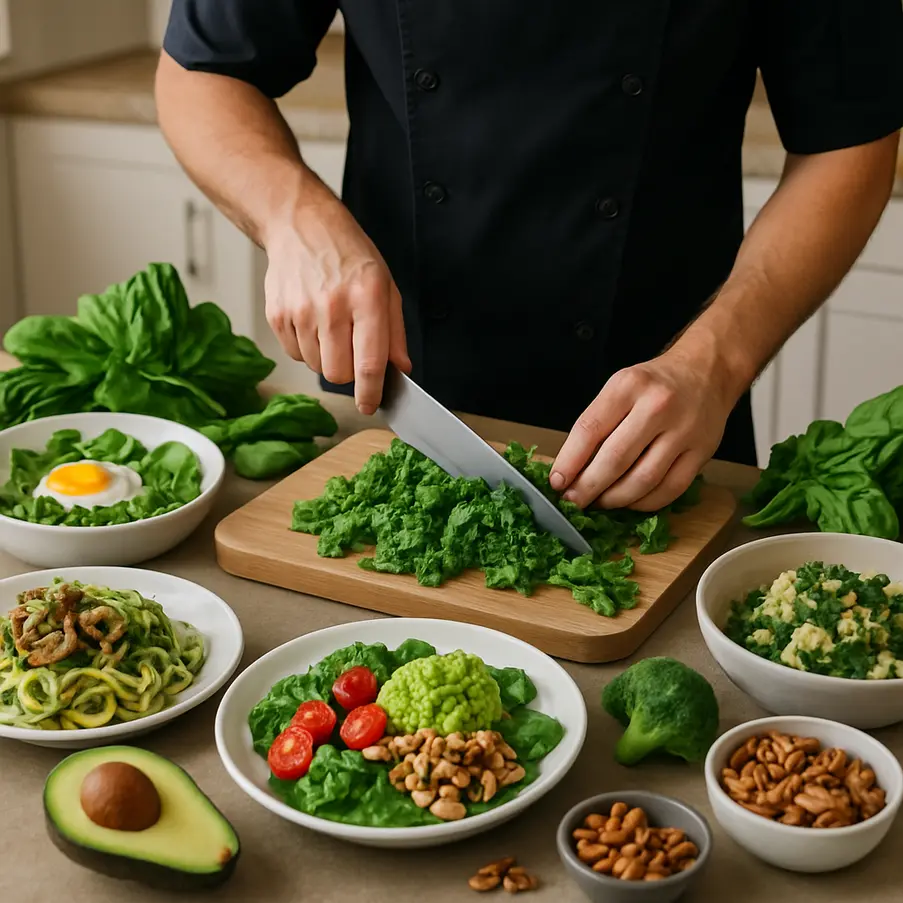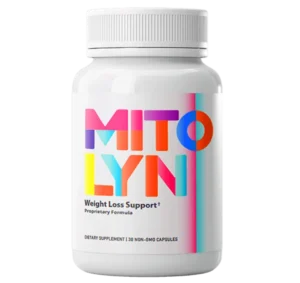Keto Diet Meal Plan for Vegetarians
Navigating the world of low-carb, high-fat diets like keto can be especially challenging for vegetarians. The ketogenic diet typically emphasizes meat and animal-based fats, leaving vegetarians wondering how they can participate in this popular lifestyle change. The good news is, with some creativity and careful planning, you can successfully adopt a keto diet meal plan that respects vegetarian guidelines. This guide will walk you through the essentials of crafting a vegetarian keto meal plan, highlight important nutritional considerations, and provide delicious meal ideas to get you started on your journey.
Understanding the Vegetarian Keto Diet
Adopting a vegetarian keto diet combines the principles of ketosis with a plant-based lifestyle, opening up a world of nutritious possibilities. At its core, the keto diet aims to shift your body’s metabolism from burning carbohydrates to burning fats, a process known as ketosis. Achieving ketosis involves reducing carb intake to under 50 grams per day and increasing fats to replace the lost energy from carbs.
For vegetarians, structuring meals around low-carb, high-fat foods means focusing on plant-based sources. This approach presents exciting and diverse menu options. Key staples include healthy fats such as avocados, nuts, seeds, and coconut oil, all of which are excellent for fulfilling fat requirements while supporting heart health.
Protein sources play a vital role, and vegetarians can rely on tofu, tempeh, and seitan, which are rich in protein and low in carbs. Incorporate cheese and Greek yogurt for additional protein and fats. Don’t forget low-carb vegetables like spinach, kale, and zucchini, providing essential nutrients and fiber while keeping carbohydrate levels low.
An effective vegetarian keto meal plan integrates creativity and balance. Start your day with a spinach and cheese omelette, enriched with healthy oils. Lunchtime could feature a hearty salad of mixed greens, nuts, and a creamy avocado dressing. For dinner, try zucchini noodles tossed with tofu and a rich, savory sauce. Snacking on nuts, seeds, or cheese can help sustain energy without breaking ketosis.
Beyond food choices, immersing yourself in the vegetarian keto lifestyle requires understanding the nutritional content of everything you consume. Label reading becomes a crucial habit, ensuring you’re staying within carb limits while getting necessary vitamins and proteins.
Given these adjustments, this diet might sound restrictive, but the rewards are plentiful, including potential weight loss, increased energy, and enhanced mental clarity. Support your journey by exploring different dietary approaches. Essential vitamins and minerals play a significant part in maintaining wellness, supplementing any nutritional gaps in your keto regimen.
Understanding the vegetarian keto diet’s fundamentals allows for smart meal structuring, keeping personal health goals within reach. Remember to listen to your body’s needs and adjust accordingly, ensuring a harmonious balance in both diet and lifestyle.
Essential Ingredients for a Vegetarian Keto Meal Plan
A successful vegetarian keto kitchen is built on a foundation of nutritious, low-carb ingredients. By choosing high-quality staples such as avocados, nuts, seeds, and non-starchy vegetables, you not only adhere to keto guidelines but also ensure rich, varied meals. Here’s how these ingredients can power your vegetarian keto journey.
Avocados
Avocados are a treasure trove of healthy fats, with each fruit providing monounsaturated fats beneficial for heart health. Avocados are also rich in fiber, with 10 grams per medium fruit, supporting digestive health and satiety. Their creamy texture makes them ideal for guacamole, salads, or smoothies, replacing high-carb elements with their luscious goodness.
Nuts and Seeds
Almonds, walnuts, and seeds like chia and flaxseed are essential for their versatility and nutrient density. Nuts typically offer a combination of protein, fiber, and healthy fats. Almonds, for example, are rich in vitamin E and magnesium. Meanwhile, chia and flaxseeds pack omega-3 fatty acids, bolstering brain function and reducing inflammation. Toss them into your vegetarian keto salads or make a low-carb nut butter.
Non-Starchy Vegetables
Vegetables such as spinach, kale, cauliflower, and bell peppers are crucial not just for their low carbohydrate content, but also for their high vitamins and minerals. Spinach and kale are potent in antioxidants, and cauliflower is an excellent rice or potato substitute with only a fraction of the carbs. These veggies provide fiber and essential nutrients while keeping meals fresh and vibrant.
Internal Link: For more nutritious food options, explore our best foods for daily health routine.
Cheese and Dairy Alternatives
Cheese can be rewarding when used wisely. It’s a good source of fats and protein, with varieties like cheddar and mozzarella being popular in vegetarian keto recipes. For those who prefer non-dairy options, nut-based cheese alternatives offer similarly rich flavors and keto compatibility.
Incorporating these ingredients into your meal plan can maintain balance and excitement in your diet. Each choice supports your lifestyle and contributes to your health goals, ensuring your vegetarian keto experience is delicious and fulfilling.
Mitolyn Product
Sample Vegetarian Keto Diet Meal Plan
Embarking on a vegetarian keto journey requires planning, especially to maintain diversity and excitement in your meals. Below is a seven-day sample meal plan crafted to tantalize your taste buds while keeping you on track with your nutritional goals. Each day balances macronutrients to support ketosis and ensure adequate protein and fat intake.
Day 1:
- Breakfast: Avocado and spinach smoothie with coconut milk and chia seeds.
- Lunch: Halloumi salad with mixed greens, cherry tomatoes, and a lemon-tahini dressing.
- Dinner: Zucchini noodles with pesto and grilled portobello mushrooms.
- Snack: A handful of macadamia nuts.
Day 2:
- Breakfast: Almond flour pancakes topped with berries and a dollop of Greek yogurt.
- Lunch: Broccoli and cauliflower curry with coconut cream, served with a side of almond bread.
- Dinner: Stuffed bell peppers filled with quinoa, feta, and olives.
- Snack: Celery sticks with almond butter.
Day 3:
- Breakfast: Chia seed pudding with unsweetened almond milk and a sprinkle of cinnamon.
- Lunch: Grilled eggplant and sliced avocado on a bed of arugula.
- Dinner: Cauliflower crust pizza topped with mozzarella, basil, and cherry tomatoes.
- Snack: Roasted pumpkin seeds.
Day 4:
- Breakfast: Scrambled eggs with chives and sundried tomatoes.
- Lunch: Creamy zucchini soup with a blend of fresh herbs.
- Dinner: Eggplant lasagna using zucchini slices in place of pasta.
- Snack: Coconut chips.
Day 5:
- Breakfast: Greek yogurt with a mix of flax seeds and crushed almonds.
- Lunch: Cucumber sushi rolls filled with cream cheese and avocado.
- Dinner: Spinach and ricotta stuffed mushrooms drizzled with olive oil.
- Snack: A few squares of dark chocolate.
Day 6:
- Breakfast: Fluffy almond flour muffins with raspberries.
- Lunch: Mixed beet salad with goat cheese and walnuts.
- Dinner: Paneer stir-fry with bell peppers and a hint of ginger.
- Snack: Seaweed crisps.
Day 7:
- Breakfast: Baked eggs in avocado halves topped with cheese.
- Lunch: Cauliflower tabbouleh enriched with parsley and mint.
- Dinner: Mushroom stroganoff served over shirataki noodles.
- Snack: Olives and feta cheese.
This meal plan highlights not only the feasibility of a vegetarian keto lifestyle but also its culinary richness. The above dishes provide a delicious balance between diverse textures and flavors while supporting your nutritional needs. For additional dietary insights, you may find our comparison of popular diet plans beneficial.
Benefits and Challenges of the Vegetarian Keto Diet
Adopting a vegetarian keto diet offers numerous health benefits, making it an appealing choice for many. This diet can improve weight management, enhance mental clarity, and reduce blood sugar levels. By following a low-carb, high-fat regimen focused on plant-based foods, you may also benefit from reduced inflammation and improved heart health.
That said, it’s essential to be aware of the challenges associated with a vegetarian keto lifestyle. A primary concern is the potential for nutrient deficiencies, given the diet’s limited food options. Protein intake, for example, may become problematic if not planned carefully. To combat this, I recommend incorporating plant-based sources of protein such as tempeh, tofu, and legumes, all of which are keto-friendly due to their low carb content.
Iron deficiency is another potential issue. While leafy greens like spinach and kale are rich in iron, they also contain compounds that inhibit its absorption. Pair these with vitamin C-rich foods such as bell peppers or tomatoes to enhance iron uptake. B Vitamins, especially B12, may also be lacking since they are typically found in animal-derived products. Fortified foods and supplements can bridge this gap effectively.
Omega-3 fatty acids, crucial for brain function and heart health, are another nutrient to watch. While fish is a common source, vegetarian options include chia seeds, walnuts, and flaxseeds. These can help ensure adequate omega-3 levels while keeping carb counts low.
Balancing healthy fats is vital, too. Excellent sources include avocados, nuts, seeds, and olive oil, which provide essential fatty acids while maintaining keto’s high-fat requirements. Diversity in these sources avoids nutritional monotony and supports overall well-being.
Integrating the vegetarian keto diet into daily life requires careful planning and meal preparation. For practical advice on maintaining healthy eating habits, check out the detailed guide available here. It offers further insights into achieving nutritional balance, making it an invaluable resource for your keto journey.
In conclusion, while the vegetarian keto diet presents challenges, understanding these potential pitfalls and integrating nutrient-dense foods can pave the path to a healthy, balanced lifestyle. Consistent planning and mindful choices ensure the diet remains sustainable and enjoyable.
Final words Keto Diet Meal Plan for Vegetarians
Exploring the blend of vegetarianism and keto can lead to a rewarding nutritional experience. By focusing on low-carb, plant-based meals, you can elevate your health while honoring your dietary values. As an active participant in your nutrition journey, embrace creativity within your meal plans to keep them exciting and nutritious. Explore our site for more insights on sustainable diets and recipes that cater to your lifestyle. Your feedback on this article would help us continue to bring you content that enriches and benefits you.




